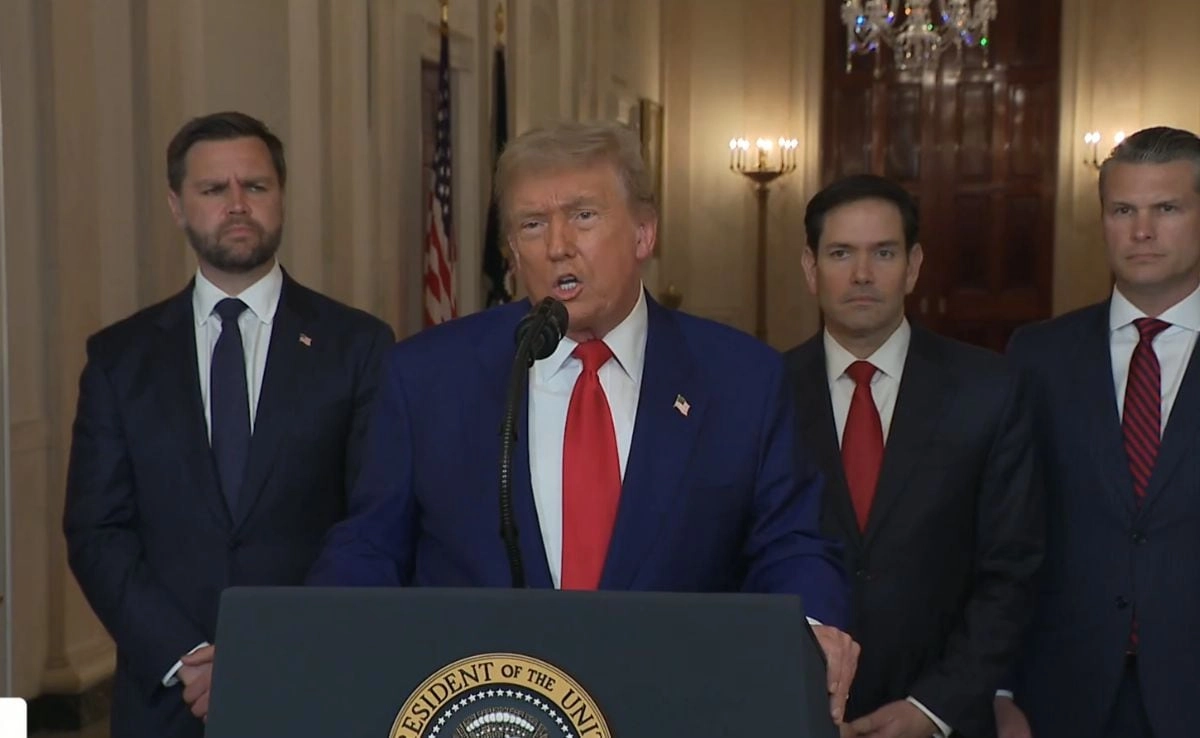In a significant escalation of tensions, former President Donald Trump made a notable statement following the military strike against Iran. Addressing the nation, he emphasized the necessity of swift action in response to perceived threats, underscoring his administration’s commitment to national security. Trump’s rhetoric suggested that the strike was not merely a tactical maneuver but a definitive message to Iran and other adversaries regarding the consequences of aggression. He framed the military action as a preventive measure aimed at safeguarding American lives and interests, reflecting his administration’s broader foreign policy approach that often prioritized decisive military responses.
Trump’s comments also revealed his belief that a lack of prompt action could lead to more severe repercussions. He articulated a clear stance: if peace would not be achieved quickly through diplomatic means, then military options would be on the table. This approach highlighted his administration’s preference for a robust display of military strength as a deterrent against hostile actions. By linking the necessity of military strikes with the urgency of achieving peace, Trump sought to justify his decisions while appealing to a base that valued strong leadership in the face of international threats.
Moreover, Trump’s statements following the strike served to rally his supporters by framing the action as a demonstration of American resolve. He portrayed the strike as a critical step in a larger strategy to maintain stability in the Middle East and to counter Iran’s influence in the region. By emphasizing the need for a quick resolution to tensions, Trump aimed to convey a sense of urgency that aligned with his administration’s overarching narrative of America as a powerful nation unwilling to tolerate threats from adversaries. This perspective resonated with many who viewed military strength as essential for ensuring national security and promoting peace in volatile regions.
In the aftermath of the strike, Trump’s rhetoric also sparked discussions about the implications for U.S. foreign policy and the potential for escalation in the Middle East. Critics raised concerns about the risks associated with military interventions and the possibility of unintended consequences, including further destabilization or retaliatory actions from Iran. Nevertheless, Trump’s commitment to a strong military posture and his insistence on the necessity of immediate action reflected a broader trend in U.S. foreign policy that often favored assertive measures over diplomatic engagements. The tension between diplomacy and military action continues to shape the discourse surrounding America’s role on the global stage, highlighting the complexities of achieving lasting peace in an increasingly fractured world.




